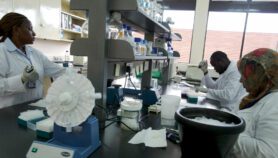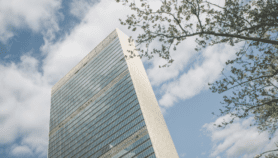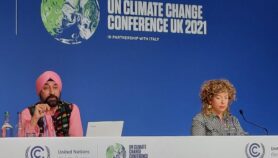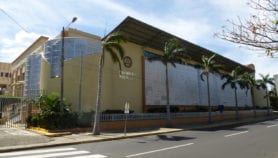By: Mićo Tatalović
Send to a friend
The details you provide on this page will not be used to send unsolicited email, and will not be sold to a 3rd party. See privacy policy.
[BUDAPEST] Two key science organisations have launched a programme to promote and develop science diplomacy between the United States and developing countries.
The American Association for the Advancement of Science (AAAS) and TWAS (The Academy of Sciences for the Developing World) signed a memorandum of agreement yesterday (17 November) at a side event at the World Science Forum, in Hungary. The agreement will also formally be announced at the TWAS General Meeting, in Italy next week (21-23 November).
The ‘TWAS/AAAS Program on Science and Diplomacy’ seeks to advance issues at the interface of science and diplomacy globally.
"The overlapping, yet complementary, strengths of the two organizations provide a strong foundation for developing an effective international program for science and diplomacy," the agreement says.
Although projects are yet to be agreed, the broad focus will be on building regional cooperation and networks between the AAAS and TWAS members and associated countries; and increasing the capacity of foreign ministries, international departments in research ministries and international policy organisations in TWAS member countries to build science partnerships.
Activities will include developing a ‘science ambassador’ programme in the TWAS region.
Alan Leshner, chief executive officer of the AAAS and executive publisher of the journal Science, told SciDev.Net: "The idea is to try to use science to build relationships between people, whether their [respective] governments do or don’t have good relationships, and to help foster regional coherence in scientific communities.
"TWAS is a major force in science, particularly in the developing world and so, for the AAAS, it’s a wonderful opportunity to build new partnerships."
"If you come in [to a country] as just the US sometimes it’s overwhelming [for that country] whereas, if you come in with local communities, that’s better. It will be much easier to engage and, we think, more effective."
Baseline funding, of a few tens of thousands of dollars, is already available, from the AAAS Center for Science Diplomacy, which was launched in 2008. And the programme is included in the TWAS budget as well. But any funding for specific programmes will have to be raised separately, once they have agreed by both parties.
Vaughan Turekian, chief international officer at the AAAS, said the initiative differs from typical efforts in science diplomacy because of its focus on exchanging experiences and capacity building, rather than on conducting science diplomacy outright.
Romain Murenzi, who became executive director of TWAS earlier this year and was formerly director of the AAAS’s Center for Science, Technology and Sustainable Development, said:
"My time at the AAAS was instrumental in understanding the issue of bringing together the diplomacy side and the science side."
Developing world diplomats are often not scientifically ready for major international meetings such as climate negotiations or the upcoming UN Conference on Sustainable Development (Rio+20), he told SciDev.Net ― a situation that this programme could tackle.
"When a major piece of global legislation is passed, it is passed by the diplomats [not scientists], so communication and linking of scientists and diplomats is very, very important."
Ideally, ministries of foreign affairs should have a built-in capacity to understand the key scientific issues that affect global affairs and, similarly, scientists should understand the importance of their work to societal and global needs, Murenzi said.













